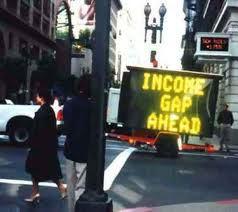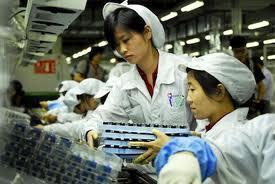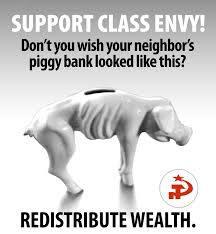For to everyone who has, will more be given, and he will have an abundance. But from the one who has not, even what he has will be taken away. – Matthew 25:29

Piketty
French economist Thomas Piketty’s Capital in the 21st Century is the latest book sensation. Confession: I haven’t actually read it. But I’ve read plenty about it (both pro and con) — hardly avoidable lately. “Progressives” are gaga over it*, a confirmation bias feeding frenzy. People love having their pre-existing beliefs flattered. Piketty strokes the left’s inequality obsession: he predicts the gap worsening, saying returns on capital tend to outpace economic growth, so wealth tends to concentrate; and to combat this he proposes a worldwide wealth tax and punitively high (80%) income tax rates for the rich.

Meantime, Piketty’s fans also strangely overlook a glaring political correctness no-no. The book is Western-centric, focusing on the “First World” and pretty much ignoring the rest. But this is no mere cosmetic flaw — it goes to the heart of Piketty’s presentation. Wealth and equality are global matters, and if you only look at part of the globe, you can’t get it right. The big story is that while inequality may indeed be rising in Pikettyland, it’s not rising, in fact it’s falling, globally.
That’s unarguable fact, because for some time, Western economic growth rates have been materially exceeded in the poorer countries, notably India and especially China (together comprising over a third of world population). That means the global gap between rich and poor must be narrowing (even if within countries it’s not).
Moreover (fatal to Piketty), trends in rich nations and poor ones are not unrelated. As we know well in America, a big reason for rising inequality is the disappearance of high-paying factory jobs that used to raise up the less affluent.

Piketty calls rising inequality “terrifying.” It would be, if the poor were getting poorer; yet they’re not. While the rich are getting richer, so are the world’s poor, albeit not as fast, but with hundreds of millions rising out of poverty in recent decades. Even in advanced countries, the poor are not falling, what with all the social safety nets. (Entitlements to Social Security, Medicare, and other government benefits are a form of wealth Piketty seems to ignore.) And poverty ain’t what it used to be: the living standard of Americans now classed as “poor” would have been considered solidly middle class a few decades ago (and would be considered rich in much of the world today).
But inequality is really the wrong concern, because the problem of the poor is not that others are rich. The problem of the poor is instead their poverty, which cutting down the rich won’t solve.

True, if you simply grab money from the rich and hand it to the poor, they’d be less poor and unequal — for the moment. But it won’t solve why they’re poor in the first place. What’s needed is not redistribution of wealth, but of the ability to earn wealth. That would be good for everyone, and without taking anything away from anyone; but it’s a much tougher problem. (Piketty does acknowledge that expanding education must be part of the answer.)

But in a commentary on Piketty, in Salon, Jesse Myerson says the solution to inequality is really simple. Instead of letting the returns on capital assets flow to their owners, we can just have the returns flow “democratically” to, well, everybody!

If you don’t find Myerson enlightening, you might try more of Robinson: here, and here.
* Visiting SF’s famed City Lights bookstore last week, the guy ahead of me was buying their last copy.
**This was demonstrated by the string of hostile comments to a version of this review on Amazon. It was all “the rich this” and “the rich that” and why they should be made less rich, with nary a word about making anyone less poor. Will there be similar comments here?
